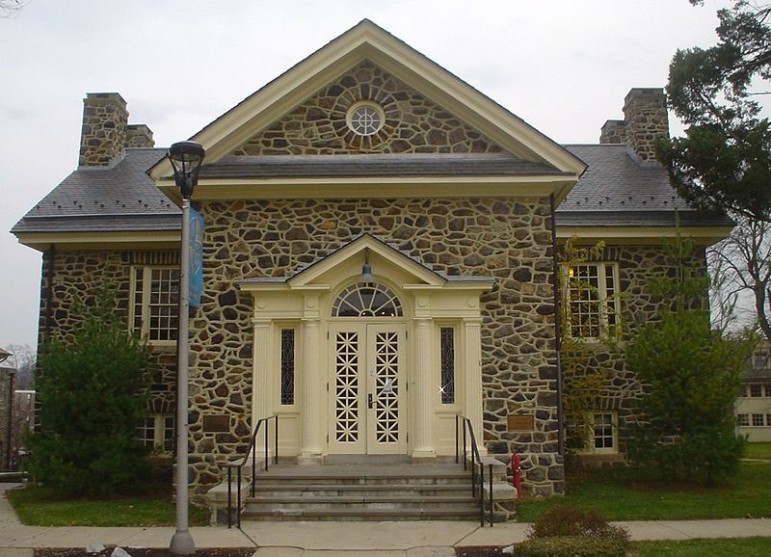
August 27, 2015; Philadelphia Inquirer
Potential Democratic candidate for President Hillary Clinton has made college affordability a significant plank in her campaign platform, with a component of her “New College Compact” providing support to students at Historically Black Colleges and Universities (HBCUs). Students who go to a community college before enrolling at an HBCU would benefit from Clinton’s commitment to making community colleges tuition free. Through her plan for state-level public-private partnerships, students attending public HBCUs would attend not have to borrow for tuition costs. According to NBC News, the Clinton plan includes $25 billion to help students at private nonprofit HBCUs.
It isn’t certain by any means that the New College Compact would make it through Congress even if Hillary Clinton were to re-enter the White House, or that the state-level partnerships would work given recent experience of some states’ very reluctant participation in plans that need their support (such as the expansion of eligibility for Medicaid). A key to making her plan successful for HBCUs is to make sure that the HBCUs are themselves surviving through the fiscal problems that too many of them seem to be encountering.
One of the latest HBCUs in some financial and managerial trouble is Cheyney University, the nation’s oldest HBCU. Founded in 1837 as the Institute for Colored Youth, Cheyney counts a number of notable graduates, including Ed Bradley of CBS News and Robert Woodson of the Center for Neighborhood Enterprise. However, a review conducted for the Pennsylvania State System of Higher Education found that the school may have mismanaged the financial aid it receives from the U.S. Department of Education to assist students and, as a result, may owe the federal government more than $29 million. According to Kenn Marshall, a spokesperson for the system, “It appears as if a large percentage of students who received grants and loans were not eligible or should not have received the level of funding that they did.”
Sadly for Cheyney, this isn’t the first time that the school has encountered this problem of administering student aid correctly. “This report brings to light the deficiencies of many enrollment management functions, the university’s policies and procedures, communications, academic progress, student accounts, student records, financial records, and student information management systems,” wrote Frank T. Brogan, state system chancellor, in a letter to Cheyney’s council of trustees, highlighting the systemic management problems that afflict Cheyney University and may reflect challenges to the school’s survival.
Sign up for our free newsletters
Subscribe to NPQ's newsletters to have our top stories delivered directly to your inbox.
By signing up, you agree to our privacy policy and terms of use, and to receive messages from NPQ and our partners.
According to the coverage in the Philadelphia Inquirer, Cheyney has an annual budget of $30.4 million, carries a $15 million deficit, and operates on a line of credit. A $29 million repayment to the U.S. Department of Education would be clearly a devastating event. For this report, the school declined to reveal its current student enrollment, but late last year, another article reported that Cheyney enrollment was at a 31-year low and the four-year graduation rate was down to nine percent.
Cheyney University may be on the verge of going under, but it isn’t the only HBCU facing major challenges. Other HBCUs in trouble include South Carolina State University, a public university, and Wilberforce University, a private nonprofit. Even some better-known and better-financed HBCUs such as Howard University and Spelman College face considerable financial challenges, according to a review in Business Insider.
President Reagan created a White House Initiative on Historically Black Colleges and Universities in 1981 to strengthen HBCUs, and each succeeding president has continued the program, including President Obama. However, a report published in Diverse Issues in Higher Education notes that inequities between funding predominantly white and HBCU schools have not been overcome. The author, Autumn Arnett, noted that President Obama infuriated members of the Congressional Black Caucus recently by suggesting that some HBCUs might have to close, something that no other president has ever suggested. “He didn’t show much empathy for struggling HBCUs,” Rep. Hank Johnson (D-GA), after President Obama’s speech to the CBC.
A Congressional HBCU Caucus was established earlier this year, with Rep. Alma Adams (D-NC) and Rep. Bradley Byrne (R-AL) at the helm. If they can generate a deeper understanding in the White House and in Congress about the importance of sustaining HBCUs, they might help deal with inequities in government support. If Clinton’s plan or something akin to it takes shape, that will help HBCU students. But the longstanding financial challenges of many HBCUs merit a redoubled commitment from charitable giving and private philanthropy to deal with accumulated deficits and mounds of debt. We don’t know of any major efforts to save HBCUs like there have been to save some troubled predominantly white colleges and universities.—Rick Cohen













